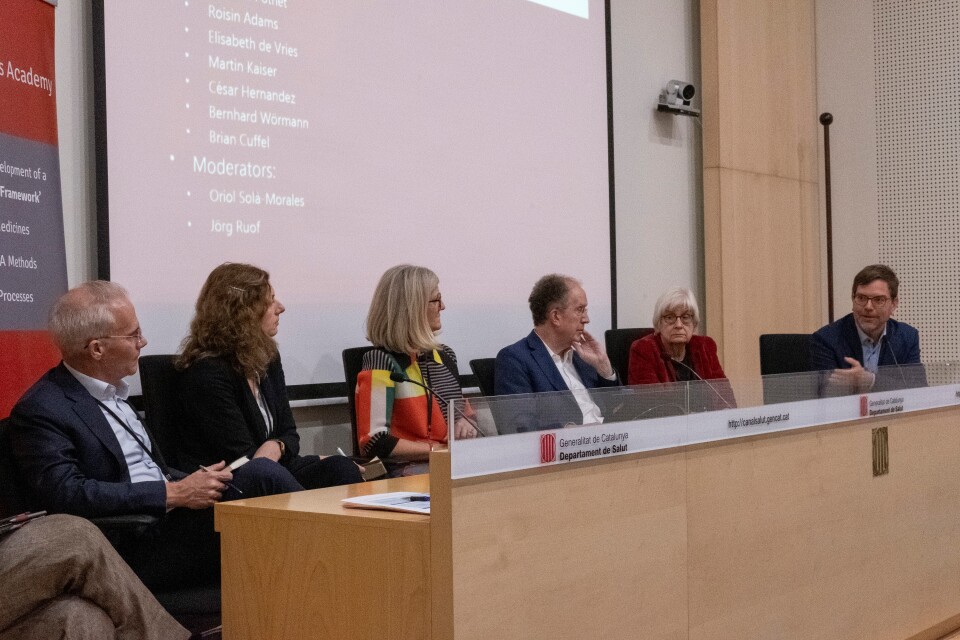This information originally appeared on the previous EHA website. Links to other pages may be inactive.

EHA’s Martin Kaiser, right, addressing his fellow panelists. Left to right: Brian Cuffel (Bayer), Caroline Pothet (EMA), Roisin Adams (HTA CG), Bernhard Wörmann (DGHO) and Elisabeth de Vries (ESMO).
From the outset, EHA has been a strong advocate for harmonization of Health Technology Assessment (HTA) at the European level. Joint clinical assessments, if done well, can improve efficiency, reduce cost, and provide a common and better evidence basis for decision making at the national level about cost-effectiveness, pricing, and reimbursement.
Prof Martin Kaiser, speaking for EHA at the Fall Convention of the European Access Academy (Barcelona, October 18-19), highlighted the potential of EU HTA for improving how evidence is generated and interpreted. Understanding unmet need and who benefits most, as well as the impact of treatment on patients and health systems, is essential for increasing access to innovative therapies in hematology.
Implementation of joint clinical assessments (JCA) under the HTA Regulation will start, from January 2025, with cancer medicines and advanced therapy medicinal products (ATMPs). The quality and impact of these assessments will hinge on the involvement of the best available clinical and patient experts. To identify them, and to encourage and facilitate their involvement, the help of EHA and other European medical societies will be needed. Participants in a multistakeholder breakout session, co-chaired by EHA’s head of European Affairs Robin Doeswijk, saw an important role for medical societies not only in expert selection but also in formulating PICO (Patient population, Intervention, Comparator, Outcome) and addressing practical challenges, such as conflict of interest and timelines.
Prof Kaiser highlighted the need for collaboration from employers, in the case of academic clinicians often more than one, hospitals, and universities. Employers must recognize the importance of clinicians freeing up time for HTA, often on short notice, and enable them to do so without risk to their careers and research funding. Academic performance indicators and the publishing system are currently not rewarding HTA work, deterring many clinicians from contributing to HTA despite the importance of comparative clinical effectiveness assessments for the quality, affordability, and accessibility of patient care.
The recordings and proceedings of the EAA Fall Convention ('Haemato-/Oncology - A Pace Maker for EU HTA') can be found here.
HTA Stakeholder Network
EHA was selected as a member of the formal HTA Stakeholder Network, launched in June 2023 to facilitate the involvement of stakeholders in the implementation of the EU HTA Regulation. Implementation is overseen by the HTA Coordination Group (HTA CG), hosted by the European Commission and composed of representatives of the HTA bodies in EU Member States.
For EHA’s earlier involvement in the shaping of EU HTA this July 2022 see this newsroom post. EHA has also co-led the BioMed Alliance’s positioning on joint HTA here.
A European Commission factsheet on EU HTA is available here.